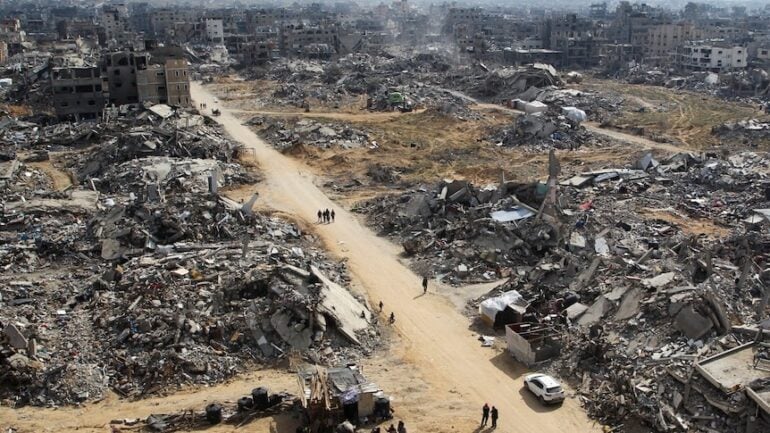Israel has ceased electricity supplies to the Gaza Strip, intensifying pressure on Hamas to accept a temporary extension of the first phase of their ceasefire agreement.
Energy Minister Eli Cohen announced the decision in a statement via X, stating “enough with the talk, it’s time for action!”
The electricity cutoff has significantly affected Gaza’s essential services.
A desalination plant responsible for producing drinking water has been forced to shut down, exacerbating the humanitarian crisis for Gaza’s 2.3 million residents. The reduction in power supply has also disrupted sewage treatment facilities, raising public health concerns according to reports by AP News.
Stay up to date on the latest news with The National Briefing – keeping you in the loop with news as it hits:
The initial phase of the ceasefire, which began in January, has concluded, and both parties are preparing for further negotiations.
A Hamas delegation arrived in Egypt to discuss extending the truce, while Israel accepted a U.S.-backed invitation to send representatives to Qatar.
The ceasefire agreement includes plans for Hamas to release 59 remaining hostages and form a governance committee for Gaza.
The United Nations and other international bodies have since criticised Israel’s actions, arguing they’re akin to collective punishment. The U.N. has called for the protection of civilians and the provision of essential services, urging both parties to adhere to international humanitarian law.
The electricity cutoff marks a critical juncture in the Israeli-Hamas ceasefire negotiations.
As both sides prepare for further talks, the humanitarian situation in Gaza continues to deteriorate, underscoring the urgency for a sustainable resolution to the conflict.
